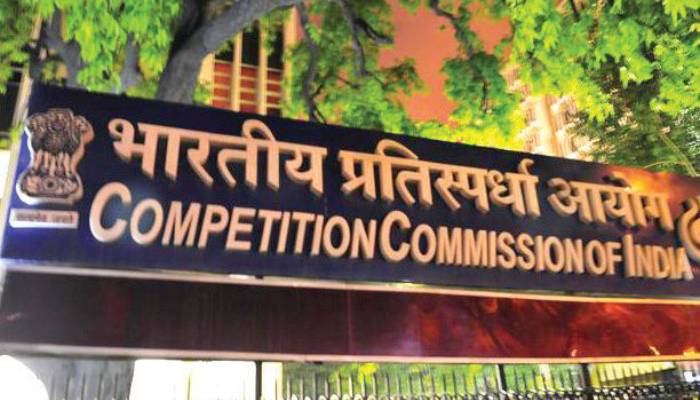
or

In a judgment on October 29 last year, the Competition Appellate Tribunal (COMPAT) has recognized the concept of ‘relevant turnover’ for calculation or imposition of penalties in cartel cases. The said case pertained to the Excel Crop Care Ltd. Vs. Competition Commission of India and Another (appeal No. 79 of 2012).
It is essential to note that until now the Competition Commission of India (CCI) has been imposing penalty on the total turnover of a company even if it was a multi-product entity.
In the said case too, the CCI, on the basis of compliant/information filed by the Food Corporation of India, had found three manufacturers — Excel Crop Care Ltd., United Phosphorous Ltd. and Sandhya Organic Chemicals Pvt. Ltd. — manufacturing Aluminum Phosphide Tablets (ALP) guilty of cartelization. It had imposed 9 per cent penalty on the average three-year turnover of each company.
However, the three companies had filed an appeal before the COMPAT challenging the order of the CCI. Apart from contesting on the merits of the case, the companies, primarily Excel Crop Care Limited, argued that being a multi-product company, the product in question i.e. ALP, accounts for less than 5 per cent of its total turnover.
The company relied on several foreign judgments, including those made in the Southern Pipeline Contractors Conrite Walls (Pty) Ltd. and the Competition Commission decision by the Competition Appeal Court of South Africa [Case No. 105/ CAC/ Dec 10) (106/ CAC/ Dec 10]. It is interesting to read para 51 of the last judgment:
[51.] “The concept of ‘turnover’ is not defined in the Act and is only referred to in section 59 (2), being annual turnover. There is thus some uncertainty as to the precise meaning of ‘turnover’. However, section 59 (3) refers on more than one occasion to ‘the contravention’; in particular, in dealing with the nature, duration, gravity and extent ‘of the contravention’, the loss or damage suffered as a result of ‘the contravention” the market circumstances in which ‘the contravention’ took place and the level of profit derived from ‘thecontravention’. Thus there is a legislative link between the damage caused and the profits which accrue from the cartel activity. The inquiry, in terms of section 59 (30, appears to envisage that consideration be given to the benefits which accrue from the contravention; that is to amount to affected turnover. By using the baseline of affected turnover, the implications of the doctrine of proportionality that is between the nature of the offence and benefit derived therefrom, the interests of the consumer community and the legitimate interests of the offender can be taken more carefully into account and appropriately calibrated.”
The company used this contention to argue that penalty (if any) should only be levied on relevant turnover. It also placed reliance on “guidelines on the method of setting fines imposed pursuant to Article 23(2)(a) of Regulation No 1/2003” used by the European Competition Commission and the European Court of Justice in setting fines on cartels. The above mentioned EU Guidelines impose fines on the basis of “value of sale of goods and services to which the infringement relates”.
Accepting the above arguments in relation to “Relevant Turnover”, the COMPAT modified the penalties imposed by the CCI and ordered 9 per cent penalty on the ‘Relevant (product) Turnover’/affected turnover instead of the turnover of the entire company. The COMPAT observed that although the penalty at 9 per cent of three years average turnover was not unreasonable, the said turnover would have to be the “relevant turnover”.
The penalty on Excel Corp Care Limited was thus reduced from Rs. 63.9 crore (INR 639 million) to Rs. 2.92 crore (INR 29.2 million). However, the said relevant turnover, as taken into consideration by the COMPAT, includes export sales, excise and other taxes paid to the government.
It is widely debated that the above judgment is not in accordance with the provisions of Section 27 of the Competition Act. At this juncture, however, the introduction of ‘relevant turnover’ is bound to benefit the industry, especially multiproduct corporations. It could, in fact, be a step forward in the development of jurisprudence in competition law space in India.
Those companies which deal or manufacture multiple products and have been facing huge penalties under the Companies Act can now argue their cases on ‘relevant turnover’. Some of the notable cartel matters in which huge penalties, based on the entire turnover of the companies, have been imposed by the CCI include cement cartel matter, explosives matter, and rubber shoes matter, among others. However, it remains to be seen how the CCI takes the same into account while imposing penalties in cartel matters and whether the CCI prefers an appeal before the Supreme Court against the order of the COMPAT.
Rahul is Partner at Dhir & Dhir Associates
Anu is Principal Associate at Dhir & Dhir Associates

Lex Witness Bureau

Lex Witness Bureau

For over 10 years, since its inception in 2009 as a monthly, Lex Witness has become India’s most credible platform for the legal luminaries to opine, comment and share their views. more...
Connect Us:


The Grand Masters - A Corporate Counsel Legal Best Practices Summit Series
www.grandmasters.in | 8 Years & Counting
The Real Estate & Construction Legal Summit
www.rcls.in | 8 Years & Counting
The Information Technology Legal Summit
www.itlegalsummit.com | 8 Years & Counting
The Banking & Finance Legal Summit
www.bfls.in | 8 Years & Counting
The Media, Advertising and Entertainment Legal Summit
www.maels.in | 8 Years & Counting
The Pharma Legal & Compliance Summit
www.plcs.co.in | 8 Years & Counting
We at Lex Witness strategically assist firms in reaching out to the relevant audience sets through various knowledge sharing initiatives. Here are some more info decks for you to know us better.
Copyright © 2020 Lex Witness - India's 1st Magazine on Legal & Corporate Affairs Rights of Admission Reserved